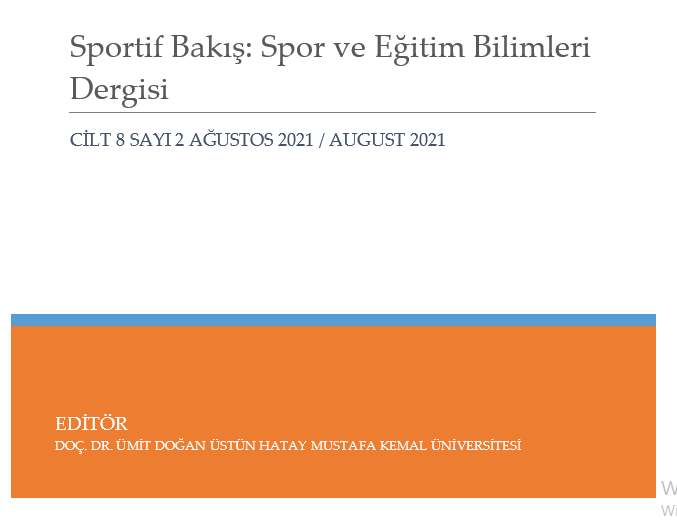Taekwondo Eğitimi Alan 13-14 Yaş Çocuklarda Tabata Egzersizlerinin Kassal Kuvvet ve Kassal Dayanıklılığa Etkisi
The Effect of Tabata Exercises on Muscular Strength and Muscular Endurance in Children Aged 13-14 who Received Taekwondo Training
Author(s): Neslihan Akçay, Merve Çoban, Melike Nur Akgül, Mahmut Esat Uzun, Mustafa Şakir AkgülSubject(s): Methodology and research technology, Evaluation research, Sports Studies
Published by: Dumlupınar Üniversitesi - Beden Eğitimi ve Spor Yüksekokulu
Keywords: strength; taekwondo; tabata; high intensity interval training;
Summary/Abstract: As in most branches, being fast, power and strength is a prerequisite for a good performance in taekwondo. Also, many different opinions are put forward for the improvement of strength performance in children. In this context, this study investigated the effect of tabata exercise, which is which is frequently reported to have positive effects on aerobic, anaerobic and strength performance in both adults and children. Thirty children (age 14.3 ± 0.21 years, height 159.1 ± 2.04 cm, body weight 50.9 ± 2.11 kg) who received Taekwondo training voluntarily participated in the study. The participants were randomly divided into two groups as the Tabata group (n: 15) and the control group (n: 15). In addition to their routine taekwondo training, tabata group was trained 3 days a week for 8 weeks. Tabata group, the fisrt session consisted of four exercise with training progressed to seven exercise in the final session. On the other hand the control group participated in their own routine taekwondo training 3 days a week for 8 weeks. Vertical jumping, standing long jump, medicine ball throwing, sit up and push-up tests were applied to all participants at the beginning, 4th week and at the end of the study. SPSS 23 package program was used in the analysis of the data. The test results of the research group at the 1st, 4th and 8th weeks were used with the Repeated Measures ANOVA Test to determine from which group the difference was caused by the Bonferroni test. Statistical significance level was accepted as p<0.05. In the study, when the evaluation was made within the group, a significant difference was found in the vertical jump, medicine ball throwing and sit up tests in the tabata group. A significant difference was found only in the sit up test on behalf of control group. When comparing between groups, there was no significant difference in all parameters between the two groups. Finally, it can be said that tabata exercises have a positive effect on strength performance in children aged 13-14 who received taekwondo training.
Journal: Sportif Bakış: Spor ve Eğitim Bilimleri Dergisi
- Issue Year: 8/2021
- Issue No: 2
- Page Range: 257-267
- Page Count: 11
- Language: Turkish

